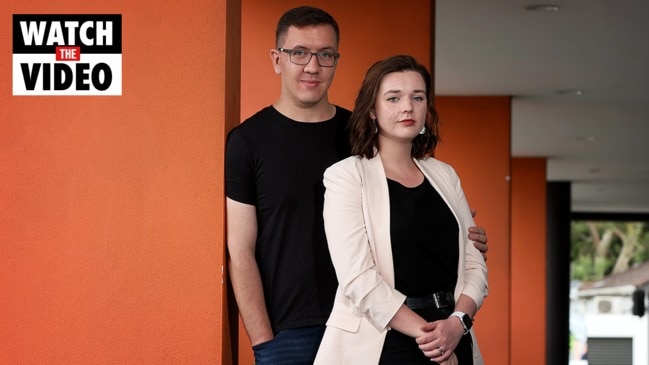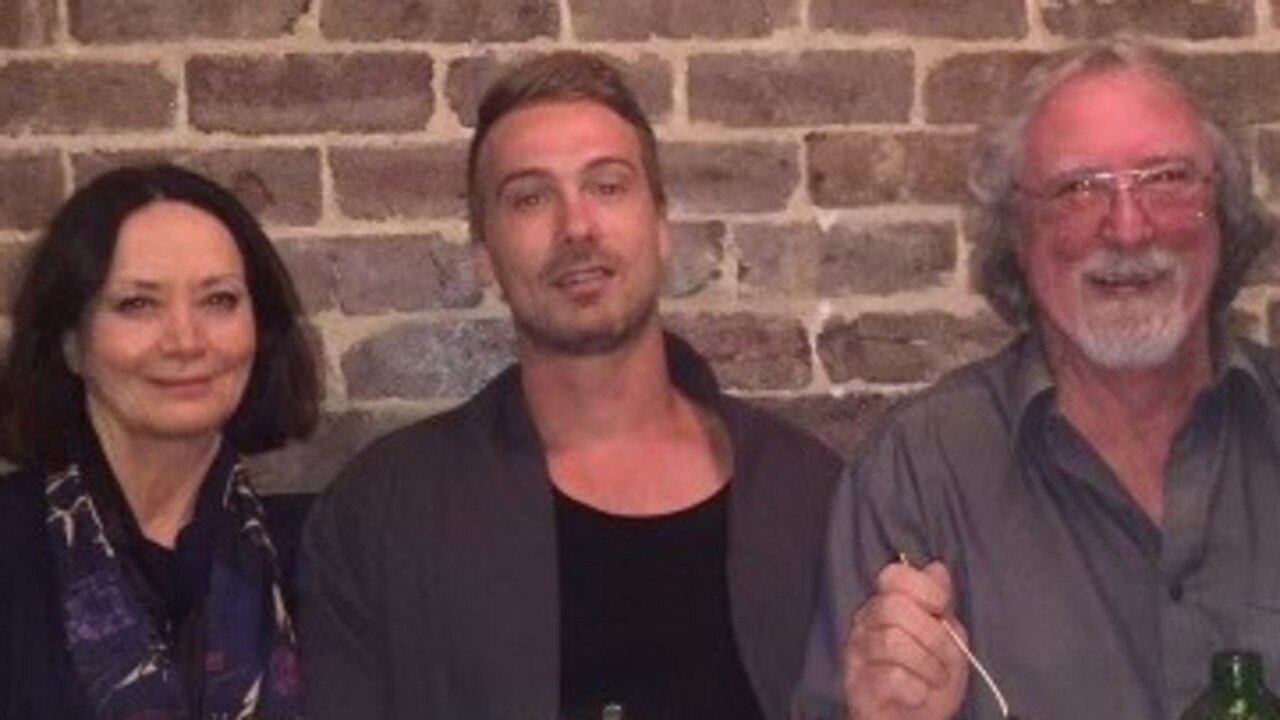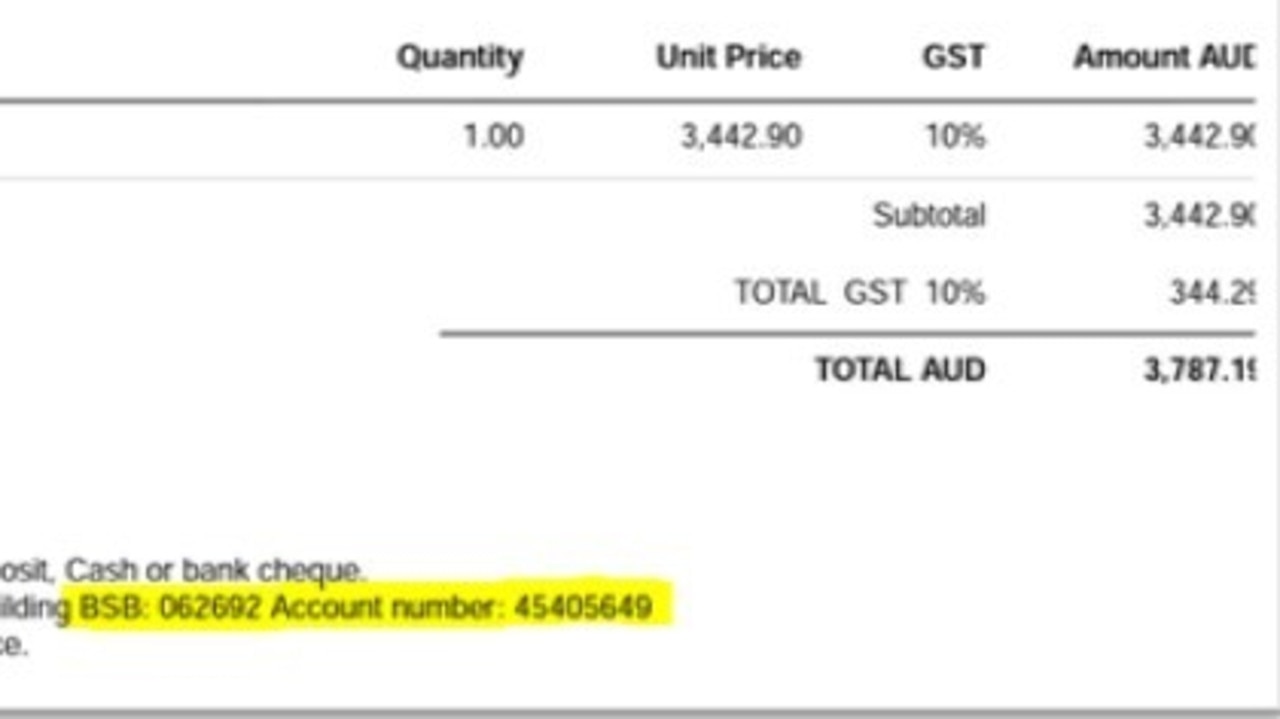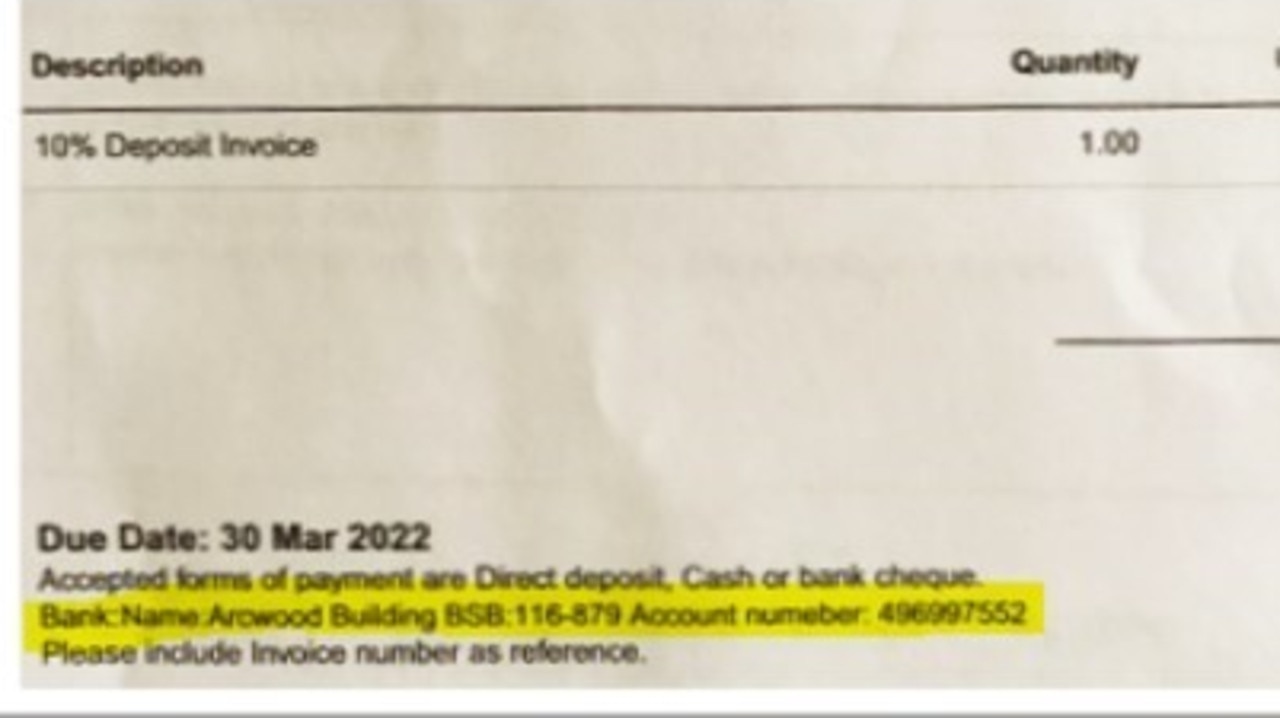Aussie devastated after losing $12,000 to ‘cowardly’ scam that targeted dad’s funeral
A family lost thousands of dollars during one of the most devastating times in their lives when they were hit by scammers.

Ace Morisey Coburn was going through one of the most “upsetting” times of his life when he lost his dad, but things were only made worse when he uncovered “cowardly” scammers had stolen thousands meant to pay for his dad’s funeral.
The 33-year-old said the scam almost saw vendors pull out of holding the funeral as they accused the family of not paying their bills.
Two invoices worth over $7000 for the venue, electronics, speaker system, lighting and catering had been sent to his dad’s email address and were paid by the family late last year.
But little did the family know scammers had intercepted the emails, changing the account numbers on the invoices to their bank details, before the email arrived from the original sender.
“For months it was back and forth and (the vendors) were getting pretty angry and we didn’t understand why. We sent them the invoice we received and showed them we had paid and they were trying to figure out what had happened but no one clued on,” he told news.com.au.
“We paid the $7000 to the scammers and didn’t get it back and had to repay the $7000 to the vendors.”
Have a similar story? Continue the conversation | sarah.sharples@news.com.au

‘Panic sets in’
The fact the scammers targeted his dad’s funeral was the “lowest of the low” and “most cowardly way of stealing”, he said.
“It was obviously a mix of upsetting, frustrating and you lose a bit of faith in humanity. I think by that point given everything that’s happened in the past few years we were at our emotional bandwidth,” he said.
“We were exhausted. It was obviously upsetting for Mum, the panic sets in and it’s a mix of every negative emotion you can think of.”
But the family’s painful experience didn’t end there.
While the funeral invoices had been intercepted in November, Mr Morisey Coburn only uncovered the scam in April this year when the family lost a further $5000 after paying an invoice for renovations.
The Sydneysider went back to examine the invoice and found a misspelt word “numeber” when it came to the account details.
“I didn’t know it was even possible for someone to intercept email details and send it back seamlessly from the original sender,” he said.
“It was not intercepted and forwarded from a fake email address – it was still from the builder.”
Less than 72 hours after discovering the scam, he went to the bank with his mum to report it, but he was left frustrated as no money could be recovered despite flagging the transaction not long after the money had been sent.
Want to stream your news? Flash lets you stream 25+ news channels in 1 place. New to Flash? Try 1 month free. Offer ends 31 October, 2022 >


‘Lost a lot of trust’
The business development manager said the fact his mum was scammed out of thousands more after the funeral incident left him with a “bit of guilt”, he said.
“I should have clued on to that earlier. If I picked up on that after the first instance maybe it wouldn’t have happened again,” he said.
“I felt responsible. I taught mum how to open invoices and how to pay and when she said the funeral hadn’t gone through I thought it was the wrong number, not us being scammed.”
He added losing a total of $12,000 would have been “absolutely crippling” for a lot of people and his mum was forced to use some of the inheritance from his dad to cover the losses.
The whole experience had also left his 69-year-old mum “rattled”, he said.
“She was grieving the loss of her life partner … and she has lost a lot of trust. The past couple of months she goes into the bank and pays invoices and she will either ring to check the account details or get a paper invoice,” he said.
“She doesn’t trust online banking any more, she doesn’t trust invoicing via emails and it rattled her, definitely. It was rubbing salt into the wound. She was already trying to process what happened on a personal level.
“In the last few months, she has lost 12kg and she was never a big woman and she has been unwell and there has been a lot of stress. The scam definitely played a part and she has been struggling with stress and anxiety.”
The family were lucky to uncover the scam when they did, as subsequent invoices from the builder have been as high as $20,000, he said.

Scamdemic
A quarter of Australians encounter scams on a weekly basis, according to research commissioned by digital security provider Avast.
It revealed three-quarters of Australians experienced a spike in attempted scams in the last 12 months and one in five were targeted by scammers at least once a day.
Three in five Australians are confident they wouldn’t fall for a scam but Aussies have reported over $336 million lost to scams in 2022, compared with $323.7 million over all of 2021, which was already a staggering 84 per cent increase on 2020.
“We are in the midst of a scamdemic, and there is a clear disconnect between Australians’ perceived confidence in ability to identify a scam and the increasing amount of money being lost to scams every year,” Avast cyber security expert Stephen Kho said.
“In reality, this is being further fuelled by our own fear of embarrassment, with half of Australians admitting they would feel embarrassed if they fell for a scam despite the prevalence and sophistication of some of these scams, as scammers get sharper with their tools and scams become increasingly more targeted to individuals’ situations.”

Online scams becoming more sophisticated
The research also showed that nearly nine in 10 respondents agreed that online scams are becoming much more sophisticated and 44 per cent feel scams are increasingly becoming more personal and targeted.
For Mr Morisey Coburn, he recommends others who receive significant invoices in their email to do their due diligence, such as calling the sender to confirm the details.
“Double check invoices and even if it comes through email don’t trust it (because) it doesn’t mean it hasn’t been altered,” he said.
“Don’t be complacent – don’t think if you get scammed the bank will get it back, as in a lot of instances they won’t.”
Due to difficulties recovering money after being handed over to “bad actors”, Mr Kho said Avast has created the Scamdemic Centre to help educate people.






